Senior HUD officials, at a December 2, 2009 hearing of the House Financial Services Committee, were asked why the non-career Administrator position for the HUD manufactured housing program — authorized by Congress as part of the Manufactured Housing Improvement Act of 2000 — is vacant and has been vacant for most of the past ten years. When they answered that such “Schedule C” appointees were more urgently needed elsewhere and that manufactured housing did not merit a Schedule C appointee, a Committee member asked whether Congress had been “wrong” or “stupid” to provide for a non-career program Administrator. While HUD had no response, the industry itself had better have a firm grip on why Congress wanted a non-career official to head the HUD program if it is to have any hope of securing such an appointment and the significant benefits that Congress intended to result.
For ten years, the tendency has been to focus on the non-career Administrator as a regulatory position. Thus, Congress — in response to program deficiencies that had been exposed over a nearly 25-year period — authorized a non-career Administrator to ensure a transparent and accountable manufactured housing regulatory program that is responsive to its stakeholders, senior HUD management and the public at large. And while this view is accurate – as far as it goes — it is much too narrow and misses many of the key reasons why Congress concluded that the HUD program must have an appointed non-career Administrator.
In addition to being a regulatory position, the non-career Administrator is, even more importantly, a policy position with critical policy functions that parallel the main goals of the 2000 law — (1) ensuring the fundamental reform of the HUD program; and (2) ensuring the full recognition and treatment of manufactured homes as housing, rather than “trailers,” both within and beyond HUD.
First, Congress correctly anticipated that key reforms of the 2000 law would be resisted by career regulators at HUD. It thus provided for a non-career appointee to head the program and act as a guardian for every other program reform included in the law, in order to ensure their full, proper and timely implementation. Consequently, it is no surprise that, in the absence of a non-career Administrator, the implementation of multiple reform aspects of the 2000 law has been — and continues to be — obstructed, minimized, ignored, undermined, altered, delayed or rolled back. Indeed, the track record of the last ten years shows — as Congress is now beginning to understand — that without a non-career Administrator, the fundamental character and culture of the HUD program will not change and the program reform and modernization envisioned by Congress will simply not occur.
Second, and even worse, the absence of a non-career Administrator leaves the industry and its consumers without a seat at the policy-making table in Washington, D.C. The 2000 reform law established the non-career program Administrator to act as the lead advocate for “the acceptance of the quality, durability, safety and affordability of manufactured housing” under section 620 of that law. This advocacy role extends well beyond the HUD regulatory program — to issues including parity in financing, placement, utilization and acceptance, among others – and was designed to ensure, at a minimum, that manufactured housing and consumers of manufactured homes would have a full and equal place in all policy decisions at HUD and in all HUD housing programs, during every Administration.
Without a non-career Administrator to interface with each presidential administration at a policy level, however, both manufactured housing and the HUD manufactured housing program have effectively been segregated from the senior political leadership and decision-makers at HUD, and frozen out of the mainstream of that agency. As a result, manufactured housing has remained under the control of career regulators and an entrenched enforcement contractor who are not interested in change and are more concerned with the nuts and bolts of regulation rather than effective policies that promote the availability, utilization and financing of affordable manufactured housing. Manufactured housing, therefore, does not show-up, either literally or figuratively, on HUD’s policy radar screen and remains today — as shown at the December 2, 2009 congressional hearing — a second-class “step-child” at HUD.
A small but telling example of this disconnect is HUD’s internet website. The initial page has direct links to a multitude of housing programs, but no reference whatsoever to manufactured housing, no indication that either HUD or the Federal Housing Administration (FHA) even have programs for manufactured housing, and no direct link to either program. Thus, the nation’s leading source of affordable, nonsubsidized housing is not even acknowledged by the primary public information resource of the federal government’s housing agency. And while this might seem minor, in itself, it is a symptom of the broader exclusion of manufactured housing from the mainstream at HUD and illustrates why the HUD manufactured housing program and the HUD Code manufactured housing industry are both in a state of severe decline.
Some may contend that a non-career appointee is heading the program, because HUD’s manufactured housing office falls under the jurisdiction of the Assistant Secretary for Housing. And while, again, this is true as far as it goes, the reality — as confirmed by repeated experience over the course of 35 years – is that these officials, with extremely broad responsibilities, cannot, do not, and do not want to get involved with the unique complexities and intricacies of the manufactured housing program, on a policy or any other level. As a result, the Assistant Secretaries, historically, have simply gone along with the decisions and recommendations of career program regulators and program attorneys within the Office of General Counsel. This is a far cry from the independent, non-career appointee envisioned by Congress, who would be immersed in manufactured housing 24-7, have direct contact with each Administration, and the latitude, freedom and will to alter the status quo as necessary — instead of being part of that status quo.
Similarly, many within the industry a about the importance of a non-career Administrator for the HUD program and the need to fill that position as quickly as possible. Unfortunately, though, except for MHARR – representing the industry’s smaller businesses that are the most directly and negatively impacted by the program’s decline – no one has done any heavy lifting on this issue and others, in fact, are helping to preserve the status quo. And while MHARR will continue to leave no stone unturned in its effort to have a non-career Administrator appointed, others who thus far have paid only lip service to this matter need to recognize the far-reaching negative implications of not having a non-career appointee in charge of this important housing program.
In MHARR’s view, every possible effort must be made to secure a non-career Administrator for the HUD manufactured housing program and bring the HUD Code industry to the policy table in Washington, D.C.
Read MHARR’s latest news release on this subject »
MHARR is a Washington DC-based national trade association representing the views and interests ofproducers of federally-regulated manufactured housing.


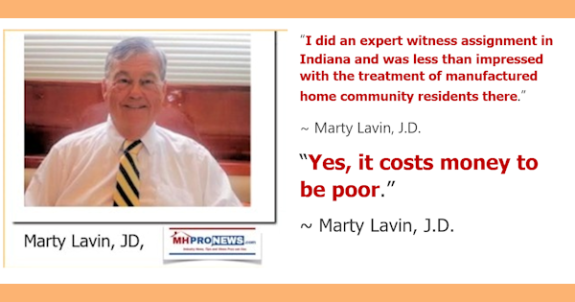
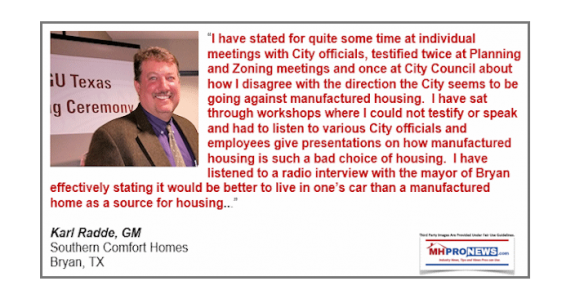
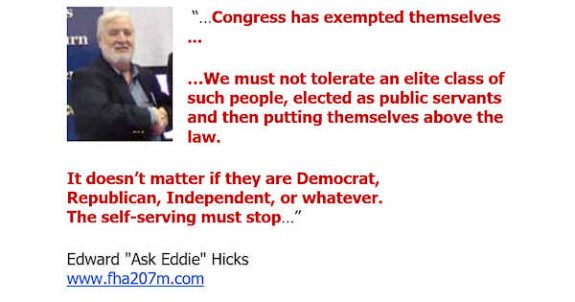
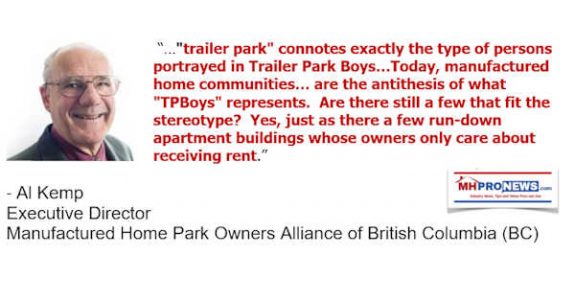
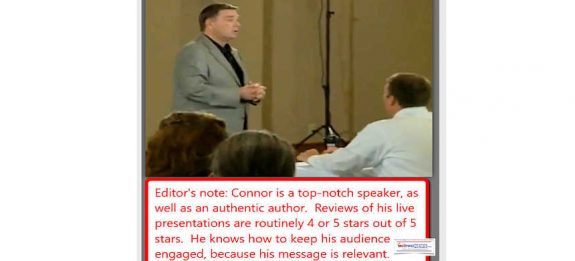
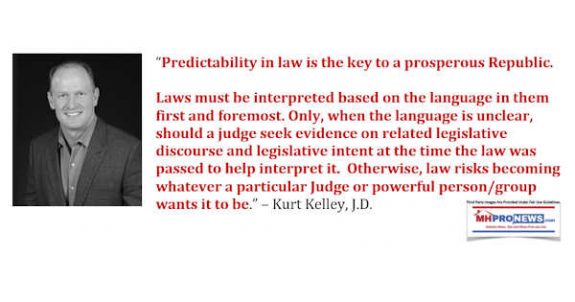
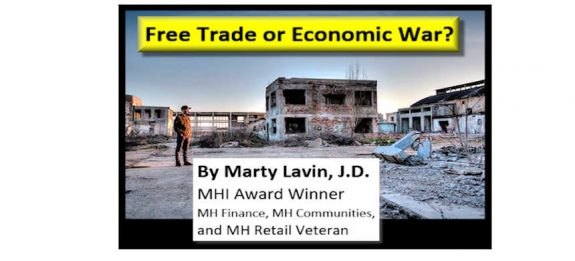
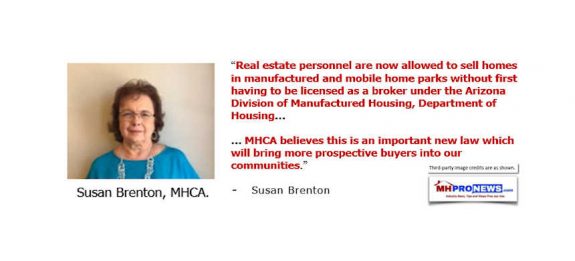
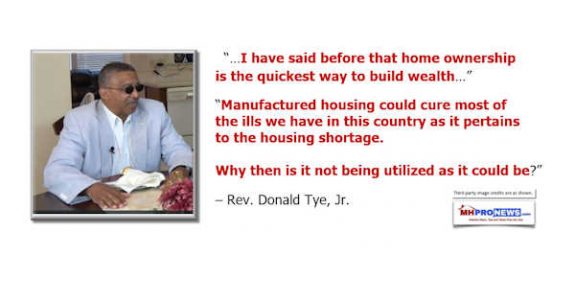
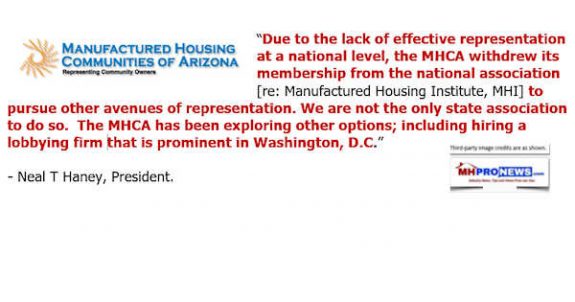

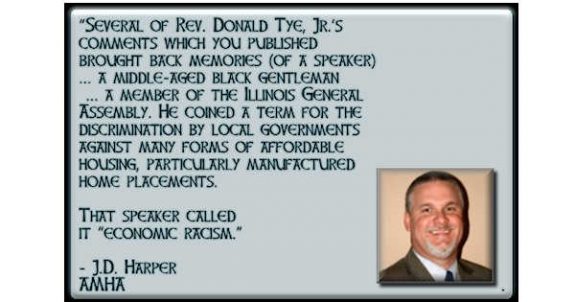
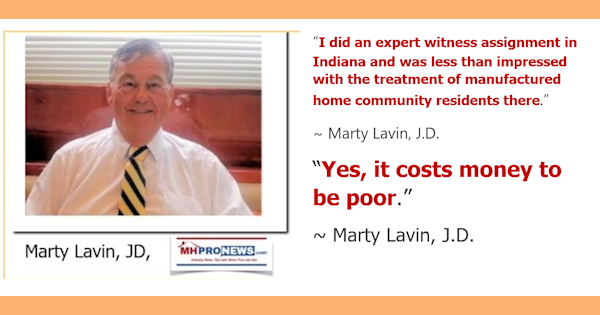
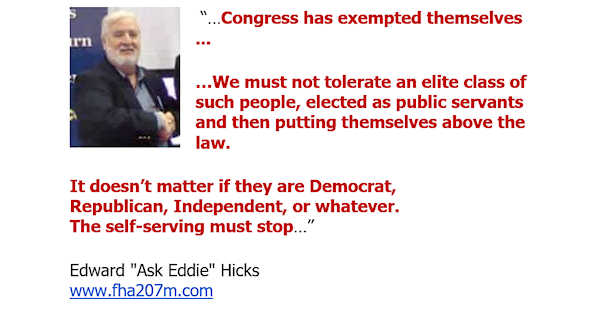
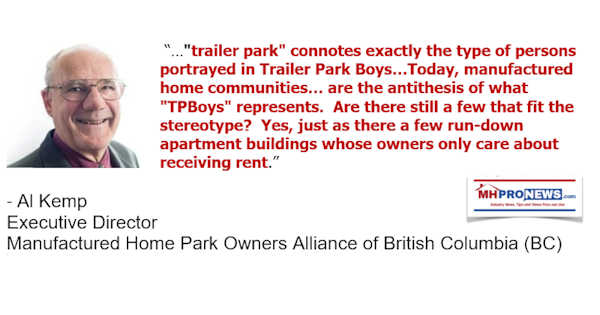
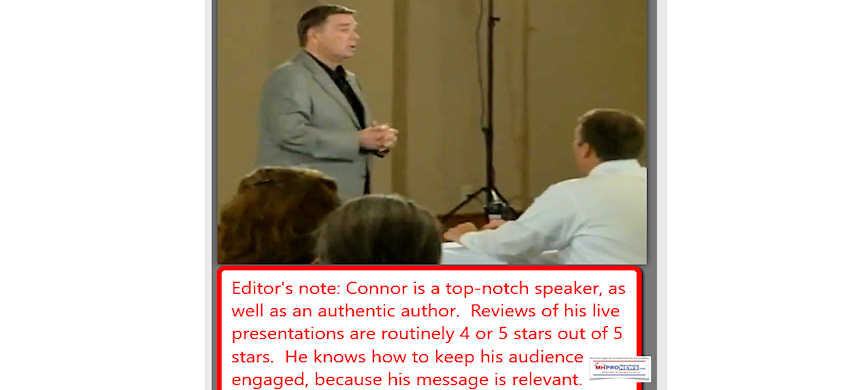
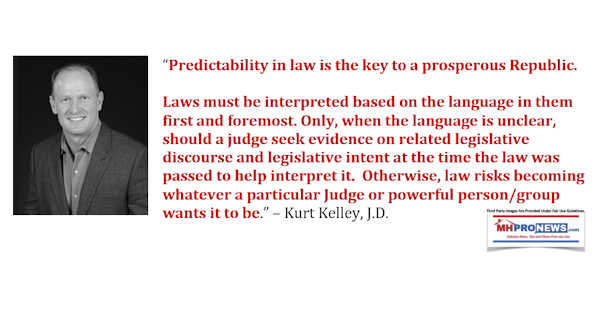
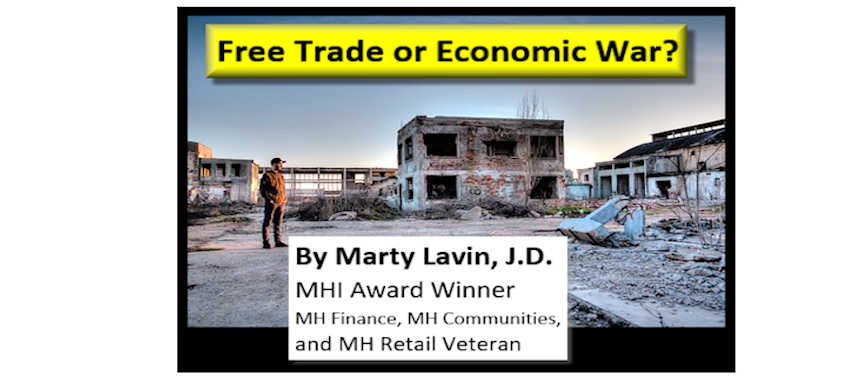
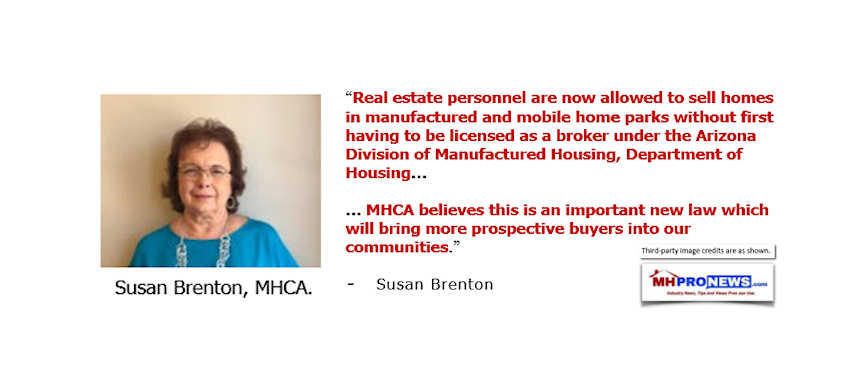
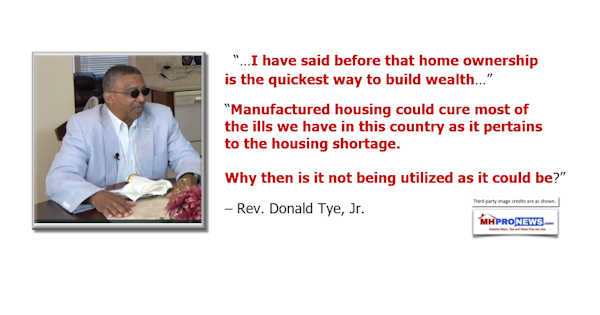
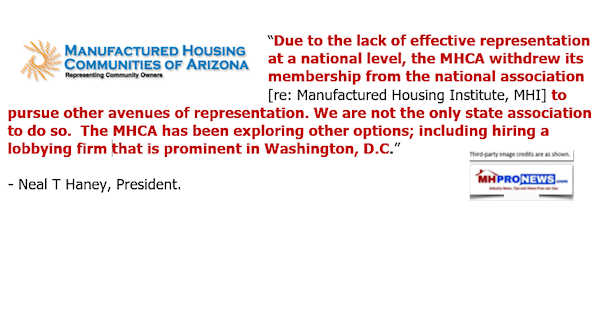

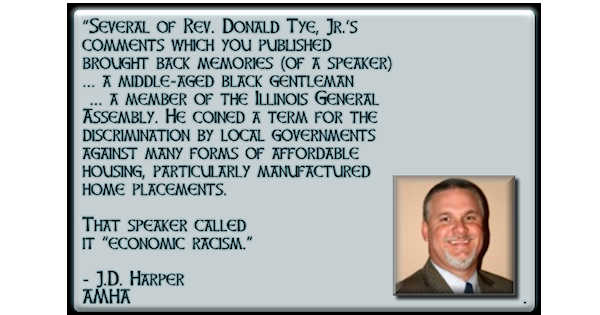
Karl Radde – TMHA, MHI, Southern Comfort Homes – Addressing Bryan City Leaders, Letter on Proposed Manufactured Home Ban
To All Concerned [Bryan City Officials, Others]: As the retail location referenced by Mr. Inderman, I would like to take a moment to address the …